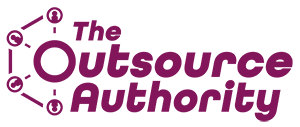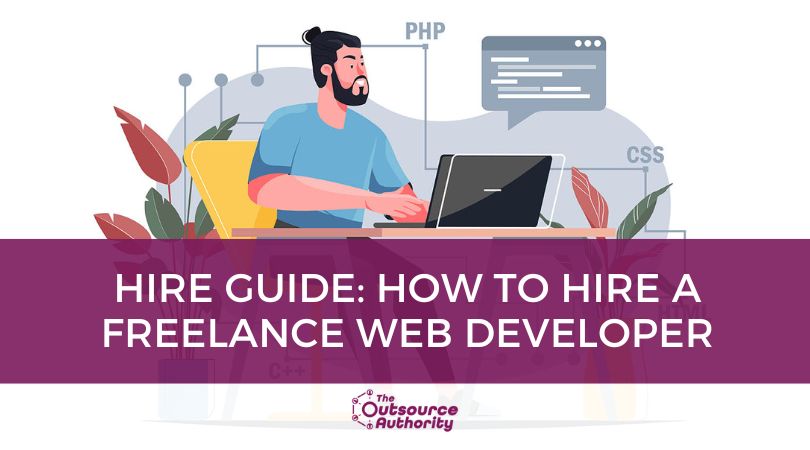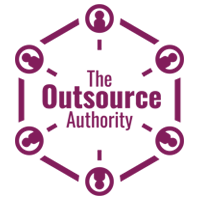I’ve seen it a thousand times…
A bright-eyed business owner goes to hire a web developer and ends up with a catastrophe.
One client came to me in crisis- he had hired a web developer who did nothing more than slap his contact information on a single-page site and called it a day.
What’s worse is that the client had let them handle buying his domain, so when he wanted to leave them, they held his site and URL hostage.
I’ve seen this happen more often than you’d think—a business owner becomes a slave to their webmaster. It all could have been avoided if they had hired the right developer.
There are so many web developers out there, it can be hard finding who you need or making sure your project goes seamlessly. This guide will help you outline what you need and how to find it so that you can easily hire a web developer that will make your website a shining success.
Identifying the Project Scope and Goals
Think about the big picture. What do you want your website to achieve? Are you looking for a sleek portfolio site, an e-commerce platform, or a complex web application? Define the core functionalities and features essential for your project’s success.
Examples of Core Functionalities and Features:
- Portfolio Website:
- Gallery Showcase
- About Section
- Contact Information
- Responsive Design
- E-commerce Platform:
- Product Catalog
- Shopping Cart & Checkout
- User Accounts
- Payment Gateway Integration
- Web Application:
- User Authentication
- Dashboard or UI
- Database Integration
- Application-Specific Functionality
- Blog or Content-based Site:
- Content Management System (CMS)
- Categories and Tags
- Comments Section
- Search Functionality
Remember:
These examples are meant to provide a basic idea. Customize this list according to your project’s specific needs and objectives.
Technical Requirements and Skills Needed
Make a list of the technical skills and expertise required for your project. Are you looking for proficiency in specific programming languages, familiarity with certain frameworks, or experience in particular design styles? Outline these specifics to find the right fit.
Here is a list of technical skills you might need:
Frontend Development:
- HTML, CSS, JavaScript: Core languages for building web interfaces.
- React, Angular, Vue.js: Frameworks for efficient frontend development.
- Responsive Design: Creating websites compatible with various devices.
Backend Development:
- Python, JavaScript/Node.js, PHP, Ruby, Java: Backend programming languages.
- Express.js, Django, Laravel, Spring: Backend frameworks for scalability.
- Database Management: MySQL, MongoDB, PostgreSQL for data handling.
Full-Stack Development:
- Comprehensive knowledge of frontend and backend technologies.
- Understanding RESTful APIs and Git for collaborative development.
Design Skills:
- UI/UX Design Principles: Focused on user-centered design.
- Graphic Design Tools: Photoshop, Illustrator, Sketch for visual elements.
Additional Skills:
- Testing and Debugging: Ensuring code performance.
- Security and SEO Best Practices: Protecting data and enhancing visibility.
Customize this list based on your project’s specific needs and the technologies that are most important.
Creating a Detailed Project Description and Requirements Document
A comprehensive project description is your best friend. Outline your project’s goals, functionalities, and specific requirements in detail. Describe the design aesthetics, technical specifications, preferred tools or frameworks, and any other essential elements. Include examples where possible. This document not only clarifies your expectations but also serves as a reference point for potential candidates, ensuring a shared understanding from the get-go.
Setting a Realistic Timeline
Time is a critical factor in any project. Establishing a realistic timeline is vital for managing expectations and project progress. Consider the scope of work, complexity, and any potential challenges that might arise. Factor in adequate time for development, revisions, and unforeseen adjustments. Balancing urgency with quality ensures a smoother workflow and a higher likelihood of meeting project deadlines.
Speak with potential freelancers about their availability and what their timeline would be for your project.
Budget Considerations
Consider your budget realistically. Understanding the financial scope of your project will guide your decisions throughout the hiring process. Determine what you can afford and what level of expertise and quality you expect within that budget.
Remember:
Having a clear understanding of your project’s scope, technical needs, and financial boundaries will significantly streamline your search for the perfect freelance web developer.
Research and Preparation
Platforms to Hire Freelance Web Developers
Hiring the right freelance web developer begins with knowing where to find the best.
Consider reputable platforms like Upwork, Freelancer, or Fiverr.
Explore industry-specific forums, LinkedIn, or GitHub to discover specialized talent. Reading reviews, checking portfolios, and understanding each platform’s nuances can help identify the most suitable avenues for your project.
Finding the perfect freelance web developer often involves exploring various platforms and sources tailored to different skillsets and specialties. Here’s a breakdown of potential avenues:
Freelance Platforms:
- Upwork: One of the largest freelancing platforms, offering a wide array of web developers with diverse skills. Features detailed profiles, work history, and reviews.
- Freelancer: Similar to Upwork, providing access to a global pool of developers. Offers project bidding and contests.
- Toptal: Known for its highly-vetted talent pool, focusing on top-tier developers. Requires rigorous screening but assures quality.
Related: The Pros and Cons of Hiring a Web Developer on Fiverr
Industry-Specific Forums:
- GitHub: Explore repositories and contributors to identify developers with specific expertise. Great for open-source projects or collaboration.
- Stack Overflow: Includes jobs section where developers showcase their skills and experience.
- Industry Forums/Communities: Niche forums or communities related to web development (e.g., Dev.to, SitePoint Forums) often have job boards or sections dedicated to hiring.
Professional Networking Platforms:
- LinkedIn: A powerful tool for professional networking. Look for developers with strong profiles, recommendations, and shared interests.
- Meetup and Tech Events: Attend tech meetups or events to network and find potential developers.
Specialized Platforms:
- Behance, Dribbble: Ideal for finding designers with portfolios showcasing visual and UI/UX design skills.
- AngelList: Great for startups seeking developers who align with their company culture and vision.
Tips for Platform Research:
- Read Reviews and Testimonials: Understand experiences of other employers to gauge the platform’s reliability.
- Check Portfolios and Previous Work: Ensure the platform allows detailed showcasing of skills and portfolios.
- Understand Platform Dynamics: Each platform has its nuances; understand fee structures, payment systems, and project management tools available.
Choosing the Right Platform:
- Consider the nature of your project, budget, desired expertise, and preferred working style when selecting a platform.
- Balance the platform’s reach and convenience with your project’s specific requirements to find the best fit.
Exploring these diverse platforms and sources will broaden your options and help you discover the right freelance web developer tailored to your project’s needs and specifications.
Finding the Right Candidate
Reviewing Portfolios and Past Work Samples
Once you’ve identified potential candidates, check out their portfolios, resumes, and past work samples. Look beyond aesthetics; assess the functionality, user experience, and technical proficiency showcased in their previous projects. Afterall, you want your new site to do more than just look pretty.
Here are some key elements to consider when reviewing a freelance web developer’s portfolio:
- Diversity in Projects: Look for a diverse range of projects. It showcases adaptability, versatility, and expertise.
- Relevance to Your Project: Projects relevant to your industry or similar in scope demonstrate a deeper understanding of your needs and potential solutions.
- Quality of Work: Assess the overall quality of their work. Look for attention to detail, design aesthetics, functionality, and user experience in their previous projects.
- Client Testimonials or Case Studies: Positive client feedback or detailed case studies can provide insights into their work ethics, communication skills, and the impact of their work on previous projects.
- Technical Proficiency: Check if they highlight specific technical skills or tools used in each project.
- Consistency and Growth: Look for consistency and growth in their portfolio. Assess how their work has evolved over time, indicating a commitment to improvement and learning.
Remember:
When looking at portfolios, think about how these elements match with your project’s specific requirements and your expectations.
Vetting Candidates
Always talk with each potential candidate before you hire a web developer. Prepare a set of important questions tailored to your project needs.
Focus on assessing their expertise, communication style, and alignment with your project vision. Additionally, consider requesting a paid trial task or discussing hypothetical scenarios to gauge their problem-solving skills.
Here are five essential questions you might consider asking a freelance web developer during the interview process:
- Can you walk me through a project like ours that you’ve worked on in the past? What were the key challenges, and how did you overcome them?
- What is your approach to ensuring the website/application is responsive and works seamlessly across different devices and browsers?
- How do you typically handle revisions or changes during the development process?
- Can you describe your preferred communication style and how you ensure clear and consistent communication throughout a project?
- How do you handle security measures in web development, especially concerning data protection and site/application security?
Tailor these questions based on your project’s specifics and desired outcomes to gain a deeper understanding of how the developer’s expertise aligns with your needs.
Assessing Communication Skills and Work Style Compatibility
Even if a freelance web developer has exceptional work, you won’t get what you’re looking for if you don’t work well and communicate effectively with each other. When you’re messaging a potential freelancer, pay attention to how they share their ideas, answer questions, and handle feedback.
Does it take them ages to respond? When are they online and is that a deal breaker?
Making sure your communication styles and work methods are aligned will go a long way towards making sure your site comes out perfectly.
What’s Next When You Want to Hire a Freelance Web Developer
It may even be an understatement to say that there are hundreds of thousands of freelance web developers available to hire right now, so I understand if you’re feeling nervous about picking the right one.
And chances are that once your website is done, you’ll want to hire other expert freelancers to handle areas like content creation, social media, or ads.
Did you know that I offer a VIP one-on-one service to help you find exactly who you need? No more rummaging through freelancer profiles, hoping to find The One. No more disappointment and money down the drain from a botched job. Just easy, breezy collaboration with experts who know how to serve your brand. Take a look here to find out more.




